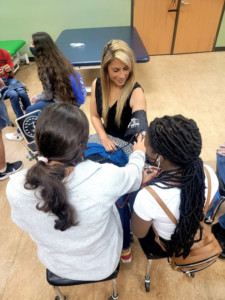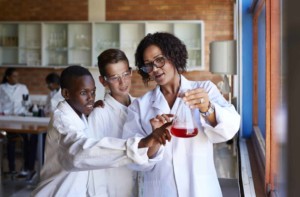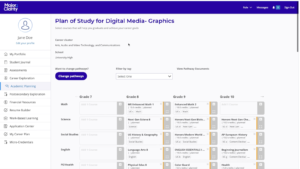As College ROI dips, College and Career Readiness Couldn’t be more Important

Only 8.4 percent of current and former students felt that their college experience fully prepared them for their career, according to a new study from Instructure, creators of the Canvas learning management system.
With this statistic in mind, it’s to no surprise that students polled had higher expectations for how well their postsecondary experience is preparing them for careers. The takeaways:
- 11.3 percent of current students believe college is “fully preparing” them for the workplace
- Only 5.7 percent of former students now in the workforce believe college fully prepared them for their job
Former tech executive Lydia Dobyns who oversees New Tech Network (NTN), a nonprofit school development organization that is in 25 states, consists of 159 schools, 3150 teachers and 53,500 students, states that on average NTN students graduate high school 9% faster than the national average and enroll in college 9% more than the national average.
As reported by College Board, the U.S. will fill only 86% of an estimated 22 million jobs requiring a college education by 2018. In a recent guest post, Dobyns explains that:
“NTN collaborates with public schools to create vibrant learning organizations where students graduate ready for college and career. We work with district teams, school leaders and teachers to create authentic learning that is grounded in inquiry, reflection, and individual agency.”
To support students’ personalized growth, every school in the network has a 1:1 tech ratio and access to a customized learning management system, Echo. NTN highlighted key network trends from their 2015 Student Outcomes Report that are supporting students to be college and career ready.
- Project-Based Learning. Students collaborate with their peers on real-world problems, learning is student-centered and inquiry based.
- College Ready Assessments. Assess deeper learning and college readiness in a representative sample.
- College Level Coursework. 70% of the schools offer AP courses and nearly 50% of students participate in AP courses or dual-enrollment programs.
- Community Based Internships. Nearly half of all seniors participate and work with local small businesses to gain comprehensive professional development.
Lauren Cooney from Napa New Technology High school said:
“I believe that my curiosity and passion for learning was cultivated at New Tech, and the skills that I developed – critical thinking, self-discipline and time management, communication and teamwork – have proven invaluable in nearly every aspect of my life.”
Jared Stein, VP of Research and Education at Instructure said:
“It’s becoming increasingly clear that students must also develop the skills and habits for self-directed, lifelong learning. This will allow them to adapt to not just uncertainty in the job market, but also new skill requirements that emerge within a field, and even entirely new fields or career paths.”
The findings from both reports suggest that the opportunity set for postsecondary institutions is vast. While students begin to rethink college options, universities should be looking for effective tools like Canvas and collaborating with schools like NTN.
For more on college and career readiness, check out:
- Personalizing and Guiding College & Career Readiness
- 8 Noncognitive Competencies for College and Career Readiness
- Infographic: College and Career Readiness GPS for Every Student
Stay in-the-know with all things EdTech and innovations in learning by signing up to receive the weekly Smart Update.








Wayne Sharp
Hey Katie,
We have built a solution to greatly help this issue - https://vimeo.com/141033406
I am talking to Tom on Monday.
Regards,
Wayne
Founder
MyVerse
Rasha K.
Really students have to be ready for work as they are in their college. all this by continous training.
thanks for sharing.